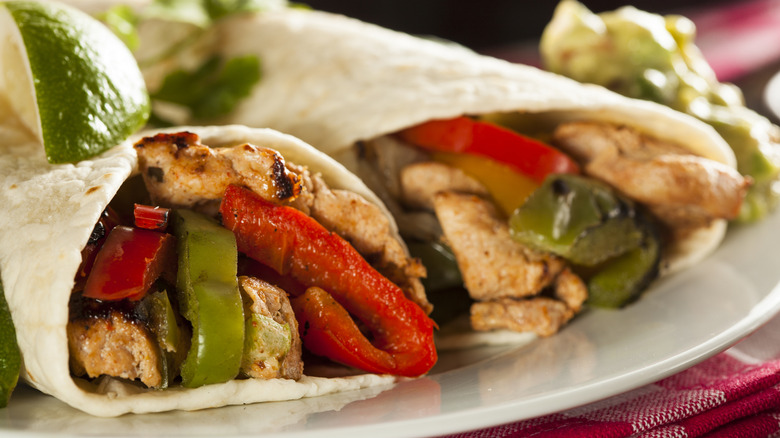Why Did Chi-Chi's Restaurants Shut Down In The First Place?
Two decades after its closure, Chi-Chi's announced its return in a December 2024 press release. After all this time, you might not recognize the name, but the group of Tex-Mex restaurants operated over 200 locations throughout the United States at one point. Originally opened in 1975, the popular chain that practically introduced classic Tex-Mex food to the Midwest shut its doors in 2004. So, what happened?
The shutdown of Chi-Chi's occurred after a series of unfortunate events — first bankruptcy, and then an infamous food safety incident. The largest hepatitis A outbreak in the history of the United States devastatingly occurred in a restaurant location near Pittsburgh, Pennsylvania in 2003. The outbreak was fatal — 605 people became ill, and four died. Hepatitis A is a liver infection that can be contracted from unsanitary food or water or through other people; symptoms include nausea, fever, stomach pain, diarrhea, jaundice, and, in severe cases, liver failure. Although no unsanitary conditions were found at the restaurant, the culprit was discovered to be fresh green onions that had been sourced from farms in Mexico and served raw in the salsa.
Chi-Chi's never recovered
After the severe food illness outbreak, hundreds of lawsuits were filed by individuals who became ill at the restaurant chain. The financial implications were astronomical — for example, one man won a $6.25 million settlement due to the need for a liver transplant. Chi-Chi's had already been struggling, filing for bankruptcy a year earlier after its expansion plans didn't pan out; the $40 million-plus in lawsuits seems to have been the final straw.
The resurgence of Chi-Chi's is led by the son of one of the former founders, in agreement with Hormel Foods, which owns the brand. In the two decades since the chain shut its doors, there's been an increased awareness of how fresh fruits and vegetables can cause foodborne illness. The outbreak that occurred years ago has informed regulations and traceability, with the FDA's Produce Traceability Initiative launching in 2008. Additionally, the hepatitis A vaccine, which was rarely recommended to the general public, became standard for all children to receive beginning in 2006. Foodborne illness outbreaks still occur — from E.coli outbreaks in McDonald's onions to dishes on our Thanksgiving tables – but outbreaks can serve as a tough lesson for improving food safety.

